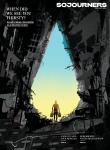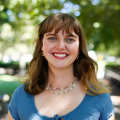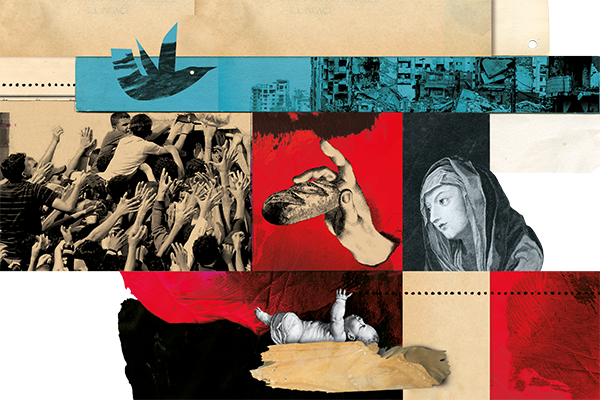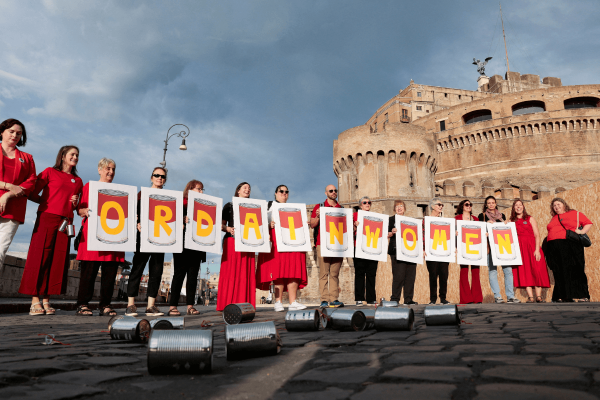When Palestinian American Sarah Aziza participated in her first public action for Palestine as a college student, an angry white woman approached her to say, “Palestinians aren’t real.”
We’ve always been a nation of selective freedoms and false promises, and that extends to the U.S. support of the state of Israel.
In The Hollow Half, Aziza writes that she was “unprepared to be erased ... this woman [was] the first of many strangers who would declare my existence both unreal and offensive.”
Aziza’s genre-bending memoir sits at the intersection of trauma, grappling with her experience as a Palestinian growing up in the U.S., her struggle with anorexia, surviving sexual assault, and her journey toward accepting her queerness. She shows her chops as a journalist, poet, essayist, and translator. But before Aziza could write The Hollow Half, she had to come back to life.
In 2019, Aziza’s anorexia reduced her to 82 pounds. Even then, she wanted to be smaller — to “disappear.” Love for and from her husband was what ultimately helped her decide to check into a psychiatric ward.
There, doctors created a strict, surveilled diet to help Aziza gain weight. During a group therapy session, patients were asked to “peel back our scabs, to bare our festering places,” she writes. “We were not asked who had cut us or why the injuries went un-cleaned. A few gripes about diet culture aside, no one spoke of the carnage the world could be. No suggestion that outside these four walls, society itself might be diseased.”
The U.S. may not be patient zero for whatever disease is plaguing society, but we certainly have developed our own signature variant. We’ve always been a nation of selective freedoms and false promises, and that extends to the U.S. support of the state of Israel.
In an interview with Democracy Now!, Aziza called Zionism a “totalizing project” that “won’t stop until we’re erased and we’re gone. Zionism, as well as the U.S. imperial project, is a project of anti-life.”
It is this anti-life project that inspired the book’s title; it was not just her eating disorder that made Aziza feel hollow, but also the destruction and erasure of her people. Yet the book relentlessly pursues life. Palestinians’ existence is an inconvenient reality for the state of Israel and its most zealous supporters. The damage that diet culture causes, including deadly eating disorders such as anorexia, is an inconvenient reality for those who perpetuate the idea that being skinny is a virtuous thing. Both belief systems — that which denies the existence of Palestinians and that which denies the existence of bodies that aren’t thin — make no room for anything that does not align with their narrative. And for Aziza, the two were linked: Being a part of the Palestinian diaspora in a pro-Zionist country directly contributed to her anorexia, to her desire to disappear. But it was only in her recovery that she was able to connect her own story to the larger Palestinian struggle.
Trauma left unaddressed will fester, and for generations of Palestinians who have been living in a state of perpetual resilience, the trauma is only multiplying. But recovery is possible. Aziza learned to temper the voices telling her to disappear, and now she unabashedly takes up space as a survivor of sexual assault, a queer woman, and a Palestinian who is very much real.

Got something to say about what you're reading? We value your feedback!







